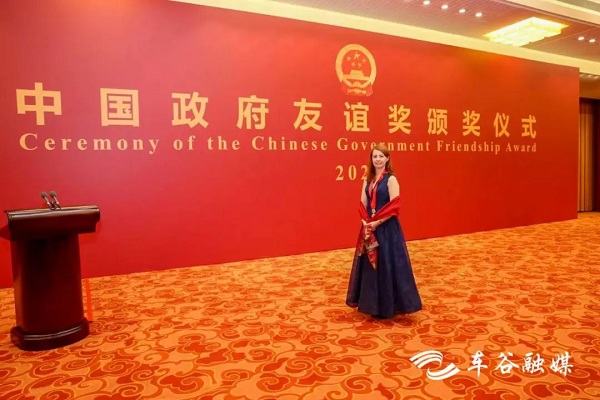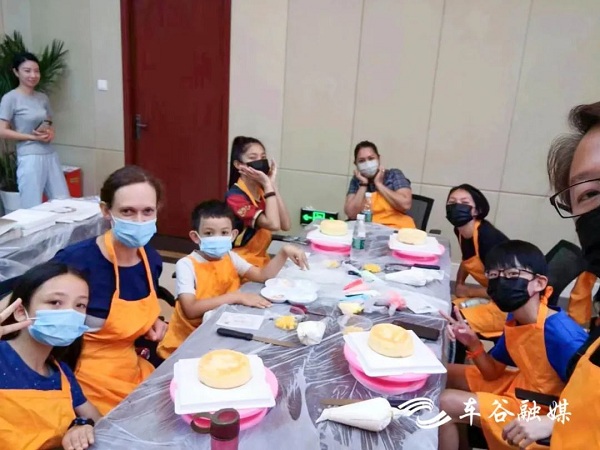

Sara attends the ceremony for the Chinese Government Friendship Award. [Photo provided to en.whkfq.gov.cn]
"My son's first language is neither Italian nor English, but Chinese," said Sara, an Italian teacher working at Jianghan University.
Sara has been living in China for 15 years, and over the past nine years, she and her son have been living in Jinyu Lanwan community in the Wuhan Economic & Technological Development Zone (WEDZ). There are another 200 foreigners like her living in the community, coming from more than 10 countries and regions, including the United States, Japan, Australia, South Korea, and Singapore.
What distinguishes the community from other residential areas is that both foreign and local residents are granted the right to plan for, construct, and govern the community together.
Sara decided to stay in Wuhan even in the hardest of times. She refused to go back to Italy in 2020, when the whole city was fighting against the COVID-19 pandemic. That spring, she received meat, eggs, vegetables and fruit from the community and her neighbors, and was taught how to place orders online to purchase necessities. She was touched by a slip of paper in the food, reading "Sara, be strong. China will solve this problem."
Sara told her Wuhan stories to the international community through online platforms, and has published her new book Morning, Wuhan in Italy. In September last year, she was granted the Chinese Government Friendship Award, which was designed to honor foreign experts who have made prominent contributions to China's modernization and opening-up endeavor.
Thinking about ways to pay back the community, Sara – a specialist in animal behavior – suggested to the community that a public space for pet activities be set up so that she can help other residents with their pets and correct animals' bad habits, such as barking, defecating indiscriminately, and attacking people.
Joshua Koh, a Singaporean psychology teacher at Wuhan Yangtze International School, also contributed to the community in his own way. Specializing in Chinese and English, he made all public signs and notices in the community bilingual. "Although we come from different places and have different nationalities, the community does not treat us like outsiders," he said.
According to him, all his nearby colleagues have moved to the community and are learning to speak Chinese. He said he believes that without the language barrier, they will be more willing to take part in community affairs.

Foreign families in the community are invited to make cakes together. [Photo provided to en.whkfq.gov.cn]